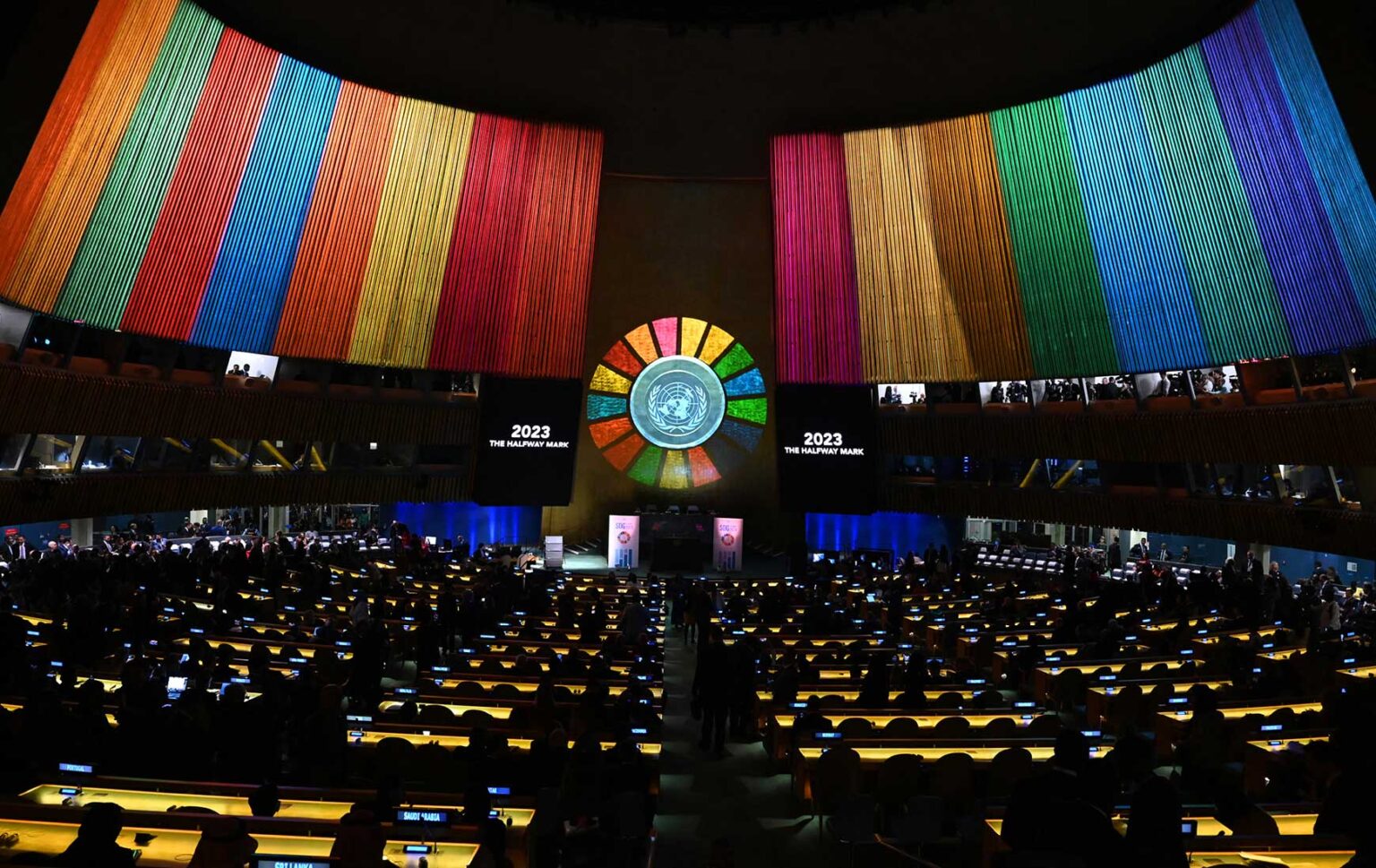Are the SDGs attainable?
On the 25 September 2015, 193 countries adopted 17 Sustainable Development Goals (SDGs) at the UN, which would come into force on 1 January, 2016. The goals, which seek to eradicate poverty, hunger and inequality, to achieve universal access to health care, clean water and sanitation, education and decent work, and fundamentally make the world a better place for all who inhabit it, were set to be achieved by 2030, representing an ambitious 15-year time frame for their implementation. Nearly three and a half years since its adoption, it is worth reflecting on how much has been achieved, and whether changing global political and economic dynamics still provide a conducive backdrop for the realisation of these ambitions.
The world is a different place now than it was in 2015. At the time, world growth was a robust 3.5%. Chinese and American growth rates hovered at 7% and 3% respectively, while GDP growth in sub-Saharan Africa had expanded by 5% just the year before. Moreover, world growth was expected to continue accelerating over the coming decade. It was a time to be optimistic and to set ambitious goals. Today, however, the outlook for global growth is less sanguine. Achieving the SDGs is contingent on a foundation of robust economic growth, but growth looks increasingly fragile. Chinese growth has been decelerating for some time, and concerns of an outright recession in the US and the increasingly fractured European Union (EU) are mounting. Moreover, the past three years have seen the rise of greater unilateralism, growing trade friction, escalating geopolitical tensions and increasing levels of disillusionment at the status quo. The seeming rise of populist politics, on both the right and the left, is both a product of this disillusionment and an obstacle in the way of overcoming it. Where then does this leave Africa in its quest to radically improve the lives of the continent’s population?
In short, in a far more precarious position. For one thing, Africa relies heavily on commodity based trade. Concerns over slowing economic growth have seen most commodity prices plateau at best, as demand for the raw commodities that fuel Chinese infrastructure development begins to wane. This presents increasing risk for the fiscal positions of many African states, which partly rely on commodity trade revenue to finance many of their sustainable development goal projects. Fiscal constraints have been further hampered by several unforeseen natural disasters across Africa, among them droughts and cyclones. These appear to be mainly the product of climate change, and, indeed, climate action is the 13th of the 17 development goals. Slowing growth in developed markets leaves less headroom for donor countries to increase aid and funding to Africa’s emerging markets, which also depend heavily on donor funding for the implementation of their development goal initiatives.
That is not to say that the SDGs are impractical or unattainable, but rather that they are aspirational. Indeed, in former years many sceptics said the Millennium Development Goals (MDGs) adopted in 2000 were unrealistic. Yet the proportion of people living in extreme poverty globally fell from nearly 50% in 1990 to 14% in 2015. In the same 25-year period, the proportion of child deaths halved. This is progress by any measure. However, the progress was uneven, with greater strides made in Asia. Africa’s lack of progress was papered over by headline figures. Currently, more than half of the people living in extreme poverty – those who subsist on less than $1.90 a day – live in Africa. This is an increase of nine million people since 1990. The World Bank estimates that if this trend persists, 90% of the world’s population living in extreme poverty will be in Africa. A 2018 report by the Sustainable Development Goals Center for Africa acknowledges that the continent “faces substantial challenges in achieving the SDGs”.
According to the centre’s dashboard, the biggest challenges are in the areas of health, infrastructure, peace, justice and strong institutions. The report found that more than 80% of the African countries surveyed in the report received a poor mark (red on the dashboard) on all of these metrics. It noted that there had been limited, if any progress on 13 of the 15 goals that are tracked. African leaders are acutely aware of the challenges the continent faces. In 2013, the African Union (AU) embraced its own Agenda 2063, which involves a much longer-term and perhaps more realistic timeframe for achieving development around the continent. Agenda 2063 seeks to achieve goals closely aligned to the resolution on the SDGs that the UN adopted two years later. Agenda 2063 seeks to realise a prosperous Africa based on inclusive growth, an integrated and politically united continent defined by good governance, democracy, respect for human rights, justice and the rule of law.
Achieving these aspirations, if realised, will lay the foundation for greater strides in achieving the 17 SDGs, but they will require resolute political will, extensive structural reform and an unwavering adherence to, and respect for, democratic rule. In what is becoming an increasingly fractured world, perhaps the most important thing in progressing the sustainable development goal agenda would be to start with the final SDG, goal 17, which deals with partnerships. As global growth slows, African countries will have to rely more on each other, rather than on intercontinental trade and international donor funding. And while the dream of realising all the sustainable development goals by 2030 grows more distant, a great deal can be achieved by improving the lives of Africans through African knowledge-sharing partnerships in areas such as innovation, science and technology, infrastructure development, agriculture best practice, education and youth empowerment.
These are low-hanging fruit that are relatively easy to implement, and which are far less bound by fiscal and funding constraints. Another quick win would be the implementation of the African Continental Free Trade Area (AfCFTA), which would significantly reduce the cost of doing business on the continent, but also improve the ease of doing business. It would free up much-needed capital among Africa’s private sector, which should be the engine of continental growth. Public Private Partnerships (PPPs), which have received very little focus in the past, are going to be ever more critical in unleashing growth drivers in Africa. With governments facing reduced fiscal headroom, the private sector is an important ally in the quest to achieving the sustainable development goals. In this arena, the sole function of African governments and policymakers must be to develop an environment conducive to investment, economic and policy stability, and growing business confidence.
In short, governments must be the foundation on which the private sector can build and do the heavy lifting. Policy certainty and stability, the reduction of red tape, and an investor-friendly environment would be the catalyst for a virtuous growth cycle, ultimately raising tax revenue and making the realisation of the SDGs more attainable. Without a united public and private sector drive, there is unlikely to be meaningful economic and societal growth.
This article first appeared in Africa in Fact, Issue #50, January – March 2019

RONAK GOPALDAS is a director at Signal Risk, an exclusively African risk advisory firm. He was previously the head of country risk at Rand Merchant Bank (RMB) for a number of years, where he managed a team who provided the firm with in-depth analysis of economic, political, security and operational dynamics across sub-Saharan Africa. He holds a BCom degree in philosophy, politics and economics (PPE) and a BCom (Hons) from the University of Cape Town (UCT). He also has an MSc in finance (economic policy) through the School of Oriental and African Studies (SOAS) in London.[



